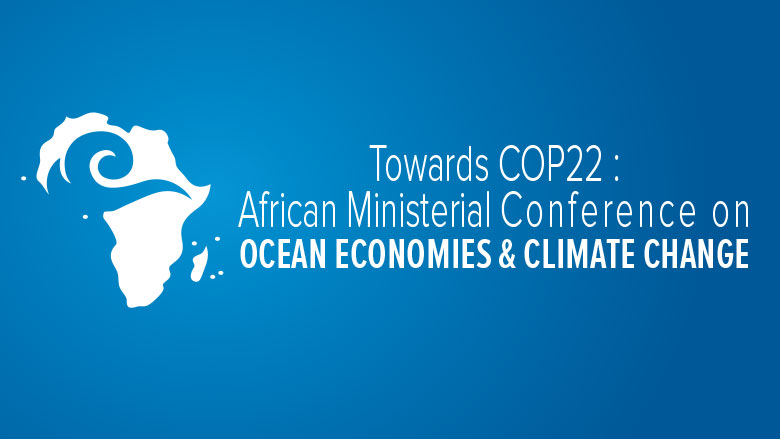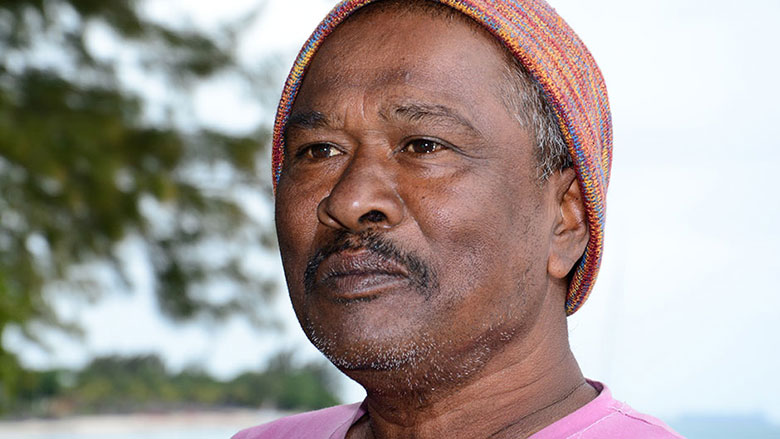The Ocean as Solution
Marine pollution, intensified agriculture, unchecked tourism and heavy industries are degrading the ocean and coasts, killing mangroves and smothering coral reefs, according to the scientists who attended this month’s African Ministerial Conference, “Towards COP22: African Ministerial Conference on Ocean Economies and Climate Change,” co-organized by the World Bank Group and the Government of Mauritius.
Infrastructure in disrepair and limited environmental governance has contributed to a depletion of fisheries and an increase in erosion in Africa. The most vulnerable people are those living closest to the sea, and they are also the poorest.
Yet the economic potential of the sea is immense. If the ocean were a nation, it would be the world’s seventh largest economy with a GDP of $24 trillion according to the WWF report Reviving the Ocean Economy: The case for action—2015. West Africa’s coastal zone, where 31% of the population lives, is the source of 56% of that region’s GDP. But that wealth is under threat -- experts project a 50% reduction in the number of regional fisheries-related jobs by the 2050s due to declining fish stocks.
The goal of the Mauritius conference was for African countries to strategize together on how best to build more resilient blue economies through regional partnerships, leveraging and catalyzing finance and knowledge sharing, and help place the ocean firmly at the center of the international agenda before COP22.
At the conference, Ministers from SIDS, African coastal countries, scientists, investors, development partners and civil society joined forces to support investment projects fueling the ocean economy with good fishing practices, improved and increased aquaculture, sustainable tourism, and greener and stronger ports, while adapting to and mitigating the severe impacts of climate change.
“The ocean is not the problem, it is a space for solutions,” said H. E. Cipriano Gomez, Secretary General of the Ministry of Guinea-Bissau, a West African coastal country with more than 90 islands. “We aim to improve food security by improving access to production areas, rural markets, and the rehabilitation of sea transport.”
Blue Economy 101: Replenish the Fish
The Mauritian beach called Bain des Dames is less than 10 miles from the fishing community at Pointe Aux Piments. According to local lore, Bain des Dames is named for the African women brought to Mauritius as slaves to work on the sugar cane plantations and who bathed in the sea here.
Don Banchoo, 60, is the chief fisherman at Bain des Dames, and his view of his profession is grim. “We are ancestral fishermen,” he said. “In a few years this will disappear. Our children don’t want this job due to climate conditions and a lack of security.”
While Banchoo’s fears are real, the African Ministerial Conference was a forum for solutions that can address them. They included best practices for public-private partnerships for sustainable fishing; accelerated and disease-free aquaculture projects; sustainable fishing practices in Mozambique; finding alternatives to sand for the making of concrete; and approaches to mangroves restoration and reef rehabilitation.
“The blue economy is a new frontier for Africa,” said Jamal Saghir, Senior Regional Adviser for the Africa region at the World Bank. “African coastal and insular countries wish to invest in the blue economy and have requested technical and financial support. And they need to factor climate change in the equation, which is ambitious. The World Bank intends to support them by mobilizing its own IDA resources and climate finance from sources like the Green Climate Fund (GCF). As requested by the Ministerial Conference held in Mauritius, this will be discussed with the GCF directly and there will be a session dedicated to Africa at Oceans Day at COP22 in Marrakesh.”
“Ocean ecosystems are vast complex and dynamic,” FAO Director General Jose Graziano da Silva said at the conference. “The oceans bordering the African continent are full of secrets…requiring novel innovative solutions.”
He added that with the support of the World Bank and the FAO, “African countries will be champions” of the ocean economy.


